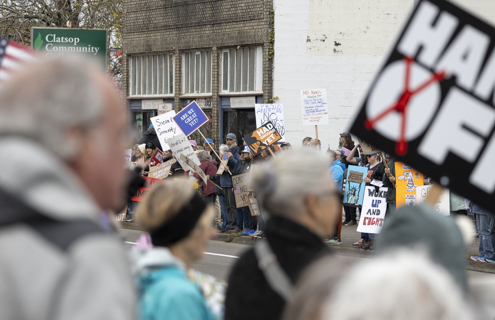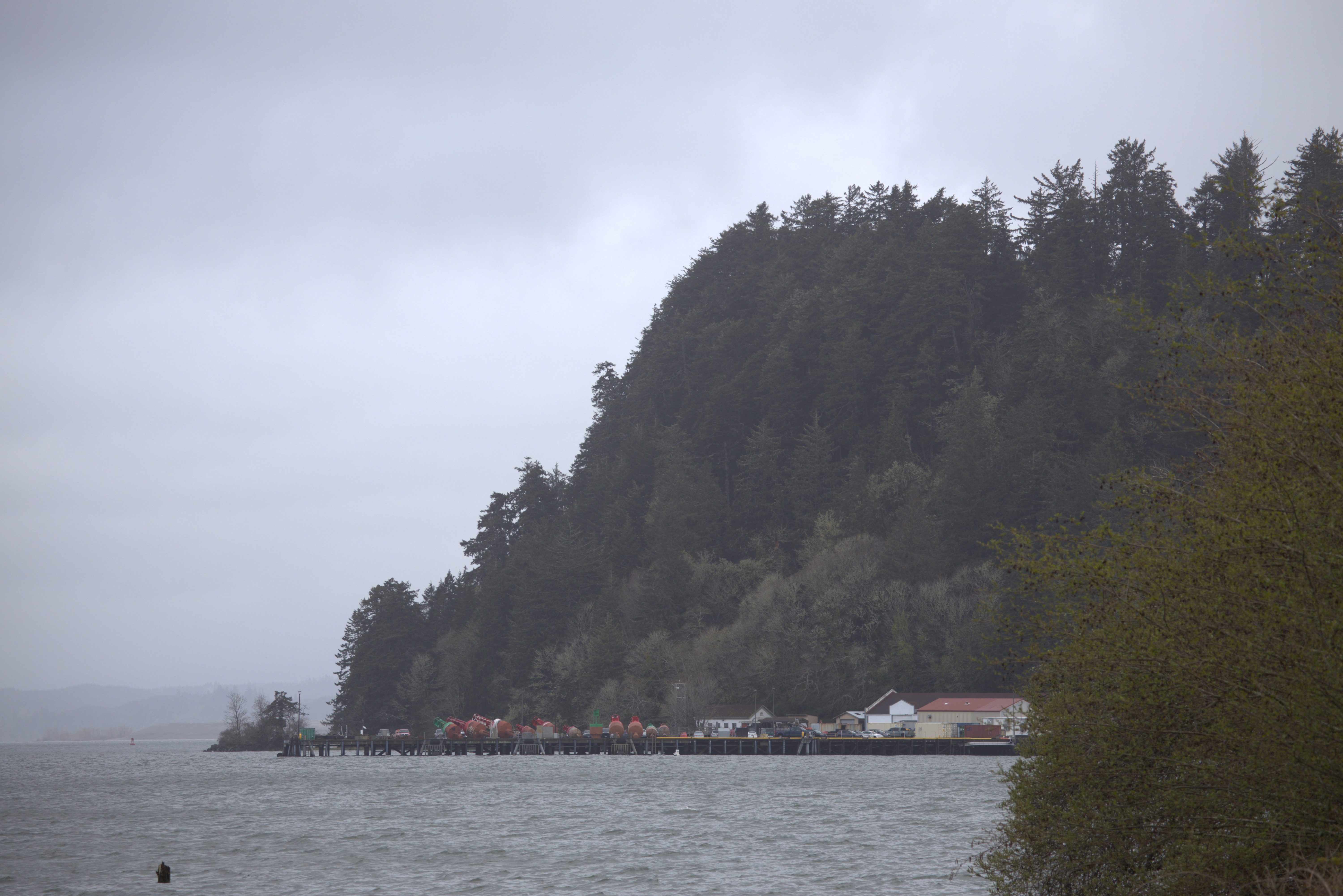Saddam rejects ultimatum
Published 4:00 pm Monday, March 17, 2003
Coast Guard on alert for possible terrorist attackIn the countdown toward war, President Bush is ready to order a massive military strike against Iraq if Saddam Hussein refuses to surrender power by a deadline of 5 p.m. Wednesday.
Wary of retaliation, Bush braced Americans for possible terrorist attacks.
Today, Iraq’s leadership rejected Bush’s ultimatum. Iraqi television said the decision was made in a joint meeting of the Revolution Command Council – Iraq’s highest executive body – and the leadership of the ruling Baath party. Saddam chaired the meeting.
Saddam’s elder son, Odai Hussein, said Bush is “unstable” and “should give up power in America with his family.”
White House spokesman Ari Fleischer responded that “Iraq has made a series of mistakes, including arming themselves with weapons of mass destruction that have brought this crisis upon itself.
“This is the latest mistake Iraq could make. It would be Saddam’s final mistake,” Fleischer said. “The president still hopes he will take the ultimatum seriously and leave the country.”
But Fleischer would not rule out a U.S. attack before Bush’s 48-hour clock ran out if the Iraqi leader rejects the exile offer. “Saddam Hussein has to figure out what this means,” he said.
On alert
“The U.S. Coast Guard is taking appropriate security measures consistent with the change in the Homeland Security Advisory System level,” according to a statement released by the 13th Coast Guard District, which includes Group Astoria.
“The Coast Guard is increasing its patrol operations with cutters, aircraft, and boats, and is closely monitoring maritime activity.”
The Coast Guard is working with the departments of defense, transportation and homeland security, the FBI, and other federal, state, and local security and law enforcement agencies to ensure the security of ports, waterways, and facilities, the statement said.
“Consistent with our standing policy, we do not discuss specific details of security and safety plans. We ask the maritime industry, boaters, and general public to be alert and notify the Coast Guard of any unusual or suspicious activity in the ports and waterways.”
Rallying support
Bush was spending the day in a White House protected by increased security measures, calling allies and trying to recruit partners for the war. He also met with Defense Secretary Donald H. Rumsfeld, as he has each day.
He was making several calls to world leaders, including Russian President Vladimir Putin, who has condemned military action against Iraq. Shortly before the call, Russia’s lower house of parliament decided to indefinitely put off a vote to ratify a U.S.-Russia nuclear arms treaty because of the threat of war in Iraq.
Bush, in a prime-time speech Monday night, vowed to strike Iraq with “the full force and might” of the U.S. military unless Saddam and his two sons leave Iraq within 48 hours. More than 250,000 American forces are poised for action in the Persian Gulf. “The tyrant will soon be gone,” the president pledged.
Not needed
Senate Democratic leader Tom Daschle charged that a collapse of the administration’s diplomatic efforts had brought an unneeded war.
“I’m saddened, saddened that this president failed so miserably at diplomacy that we’re now forced to war,” Daschle said in a speech to the American Federation of State, County and Municipal Employees. “Saddened that we have to give up one life because this president couldn’t create the kind of diplomatic effort that was so critical for our country.”
Fleischer accused Daschle of being “inconsistent” because the Democratic leader had insisted last September – after Bush accused Democrats of putting politics ahead of the nation’s security – that “we ought not politicize this war.”
Fleischer said Daschle did not raise objections Monday in a meeting at the White House with other lawmakers shortly before the president’s address. “He said nothing,” Fleischer said.
Bush likened the Iraq threat to those posed by perpetrators of genocide in the last century. “In this century, when evil men plot chemical, biological and nuclear terror, a policy of appeasement could bring destruction of a kind never before seen on this earth,” he said.
“Responding to such enemies only after they have struck first is not self-defense, it is suicide,” Bush said. “The security of the world requires disarming Saddam Hussein now.”
Having abandoned diplomacy at the stubbornly divided U.N. Security Council, Bush set about trying to win over an equally divided American public. A CNN-USA Today-Gallup poll found Americans just about evenly split on whether the United States should unleash military action without a new U.N. vote. Forty-seven percent supported such an action and 50 percent opposed it.
Bush often says that Iraq seeks to help “al-Qaida-type” groups, but Monday night he went a step further, saying Iraq has “aided, trained and harbored terrorists, including operatives of al Qaida.”
The president gave Saddam 48 hours, starting at 8 p.m. EST Monday, to leave his country or face “military conflict, commenced at a time of our choosing.” He warned weapons inspectors and journalists to leave Iraq immediately.
Bush also cautioned Americans that war could result in domestic terror attacks, and the government raised the terror alert status to its second-highest level, orange, after he spoke. Security was visibly tightened around the White House.
“These attacks are not inevitable. They are, however, possible, and this very fact underscores the reason we cannot live under the threat of blackmail,” Bush said. “The terrorist threat to America and the world will be diminished the moment that Saddam Hussein is disarmed.”
Conferences
Bush spent Monday conferring with world leaders, most of them allies. He called British Prime Minister Tony Blair, Spanish Prime Minister Jose Maria Aznar, King Juan Carlos of Spain and Bulgarian Prime Minister Simeon Saxcoburggotski. Later in the afternoon, Bush spoke on the phone with Australian Prime Minister John Howard and Israeli Prime Minister Ariel Sharon. He also spoke to President Abdoulaye Wade of Senegal.
With anti-war protesters chanting just outside the gates, Bush briefed about a dozen congressional leaders before his speech. Vice President Dick Cheney continued the briefing after the president left to prepare for his remarks.
In London, Blair pleaded today for his party’s backing for joining the United States in military action against Iraq, saying the crisis will determine the shape of international politics for a generation.
“Back away from this confrontation now and future conflicts will be infinitely worse and more devastating in their effects,” Blair said, opening a debate in the House of Commons.
He was sure to win a House of Commons vote later today, but many disaffected members of his Labor Party were expected ignore party discipline and vote against his handling of the crisis.
Already senior Cabinet minister Robin Cook and two junior ministers have quit over Iraq.





